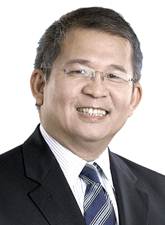In brief
The legal regime of export and dual use items (“DUIs“) control and the trade control of items related to the proliferation of weapons of mass destruction (WMD) in Thailand is currently governed by the Trade Control on Weapons of Mass Destruction Related Items Act B.E. 2562 (2019) (“WMD Act“), which came into force on 1 January 2020.
Previously, the Ministry of Commerce (MOC), the main supervising authority of the WMD Act, was expected to issue lists of goods that are considered DUIs that require an operator to obtain the relevant licenses or certificates for those goods before they can, for example, export them out of Thailand (For more information regarding this, please see our previous client alert.). Based on this premise, the operator will bear the main responsibility of checking and verifying themselves whether their goods are considered DUIs and the necessary actions they need to take if their goods are on those lists.
As part of the efforts to implement and enhance the efficiency of the control measures in relation to the proliferation of WMDs and DUIs to be in line with the international standards as well as to help business operators, the MOC issued the Notification on Measures to Control Products Related to Proliferation of WMDs and Measures on Goods with Suspicious Ground that the End-use or End-user is Related to Proliferation of WMDs (“MOC Notification“) on 11 October 2021.
The MOC Notification, effective on 26 December 2021, prescribes two lists of goods that could be considered as relating to the proliferation of WMDs (“DUI Lists“) as follows:
- List 1: Goods that are considered DUI, based on the EU Dual-Use Item List of 2019
- List 2: Goods that can be regarded as DUI, based on the latest Harmonized System Codes
In this regard, if certain prescribed government entities, including the Royal Thai Police, the Royal Thai Army and the MOC, have information regarding goods to be exported, re-exported, transshipped, transited, or the technology and software to be transferred pose a risk of proliferation of WMDs or there are grounds to suspect that the end-use or the end-user is related to the proliferation of WMDs, they may notify the Director-General of the Department of Foreign Trade, MOC (DFT) to assess the risk.
Once the DFT has been notified, it will conduct a risk assessment relating to the proliferation of WMDs using the following criteria:
- Whether the activity involves exporting, re-exporting, transshipping, transiting, or transferring technology and software of the goods falling under either of the two DUI lists above
- Whether the operator has been on the United Nations Security Council Consolidated List or is related to proliferation of WMDs
- Upon request by the DFT Director-General, the operator must provide relevant evidence showing that they have already verified the said activity under (1) with the certified Internal Compliance Program (“ICP“) in line with the criteria prescribed by the DFT, and that there exists no risk of proliferation of WMDs.
If the DFT Director-General finds that there are risks related to the proliferation of WMDs (e.g., if any of the above mentioned criteria is met/not met), the Director-General is empowered to issue a notice regarding enforcement of control measures over such goods, including prohibiting the operator from exporting, re-exporting, transshipping, transiting the goods, which shall be effective from the time such notice is received.
Accordingly, instead of requiring each operator to check and verify themselves whether their goods are considered DUIs under the two prescribed DUI Lists, the MOC Notification places this obligation upon the government entities to monitor the goods instead.
An operator who fails to comply with such control measures could be subject to penalties of imprisonment not exceeding two years or a fine not exceeding THB 200,000 or both under the WMD Act. If the operator is a juristic person and the non-compliance of the operator derived from an order or action of its director, manager or any person who is responsible for the operations of the operator, such person could be subject to the same penalties as well.
Moreover, if the non-compliance relates to exportation of prohibited goods, the operator may be imposed to even harsher penalties of imprisonment not exceeding 10 years or a fine not exceeding THB 500,000 or both, as well as a forfeiture of such prohibited goods, under the Customs Act, B.E. 2560 (2017).
Internal Compliance Program (ICP)
As described above, if an operator has a certified ICP sufficiently in place and has already verified the export of their goods under the ICP, further justification can be made that even though the goods they are exporting may fall under one of the DUI Lists, it still does not trigger any risk regarding the proliferation of WMDs under the MOC Notification. Thus, the operator may not be subject to control measures by the DFT under the MOC Notification.
Under the MOC Notification, the ICP shall consist of the following systems:
- System regarding responsibility and delegation of management duty
- System regarding usage and end-user verification
- System regarding internal training
- System regarding information and document management
- System regarding system check and improvement
- System regarding reporting.
The certification criteria of the ICP have been prescribed in the DFT Notification on Certification Criteria of Internal Compliance Program (“DFT Notification“) issued on 6 September 2021. Under the DFT Notification, the DFT will certify a business operator’s ICP that meets certain prescribed criteria. For example, the ICP’s system regarding responsibility and delegation of management duty must consist of, among others, commitment of the management, person in charge of goods control system who is authorized to cancel the regulated activities under the WMD Act, documentation of policy, and rules and procedures to conduct regulated activities.
There are three levels that the ICP can be certified:
- Good – Two or more systems of the ICP meet the criteria
- Very Good – Four or more systems of the ICP meet the criteria
- Complete – All six systems of the ICP meet the criteria.
A business operator who wishes to have its ICP certified may register at the e-Thailand’s Control on Weapons of Mass Destruction related Items (e-TCWMD) system provided by the DFT and apply for the certification.
To prepare themselves for the MOC Notification, a business operator should start reviewing if their goods fall under the DUI lists, and if so, preparing the ICP for certifying with the DFT as soon as possible to avoid any disruption now that the MOC Notification has already come into force.
We will keep you updated of any significant developments.








